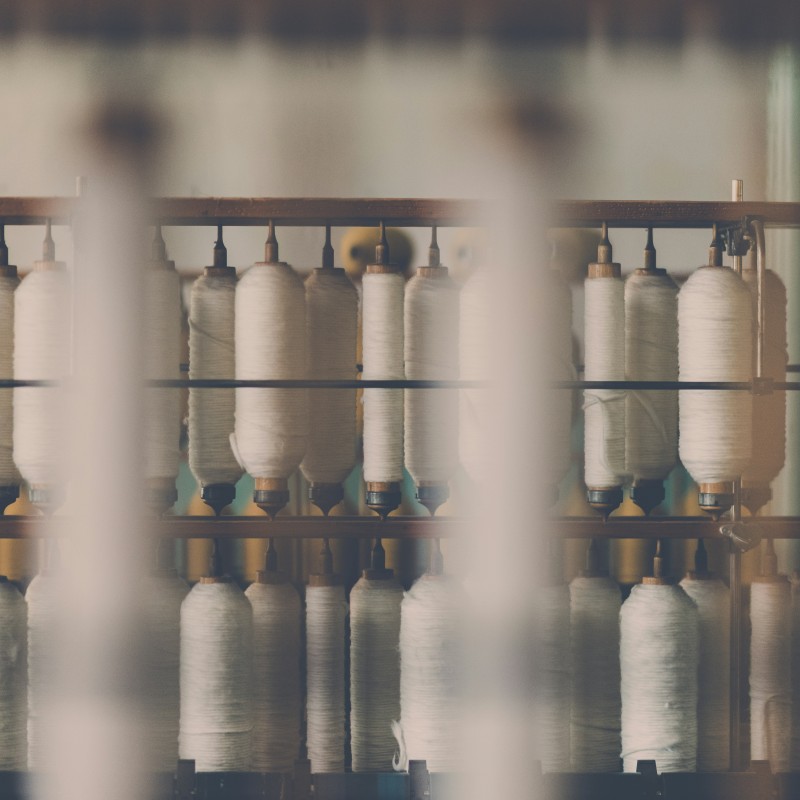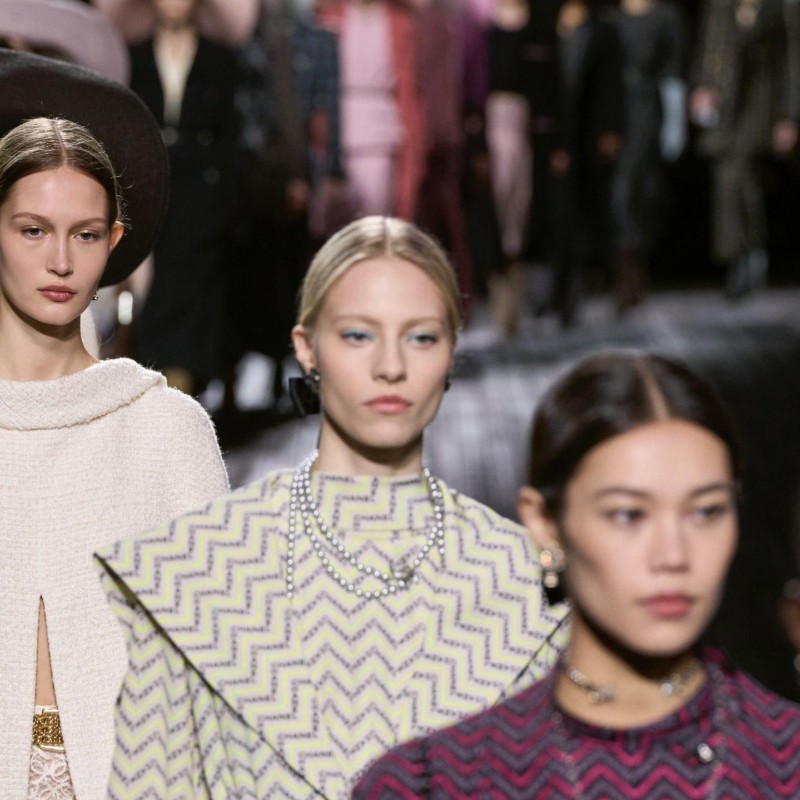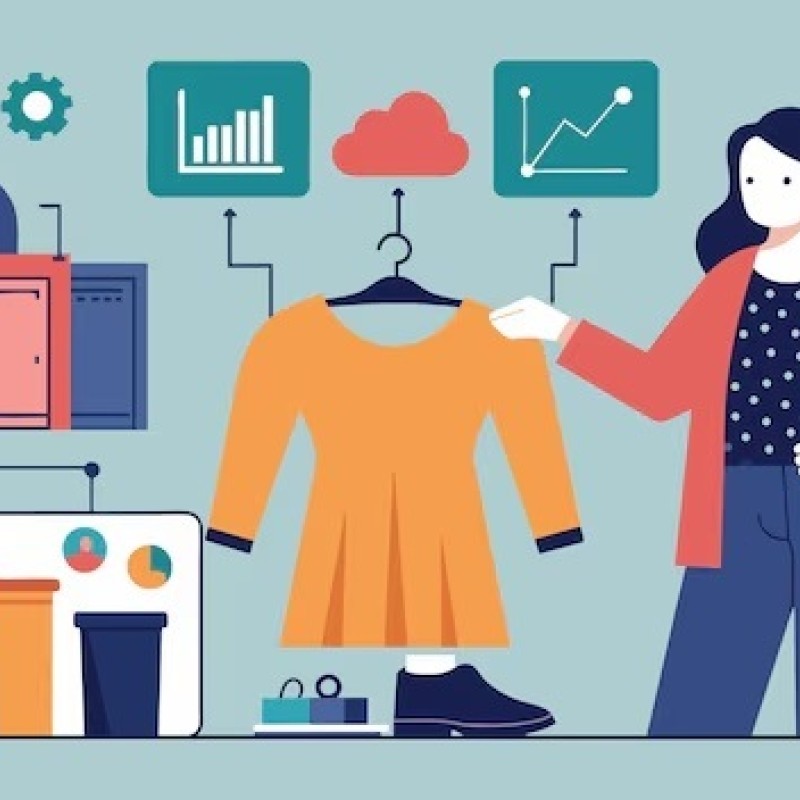annie-spratt-unsplash
One area that will see the biggest shift will be digital versus bricks and mortar. Fashion had already started to rely heavily on digital ways of selling; however, efforts were still being made to save high streets. The coronavirus pandemic has now required the industry to rethink previous strategies and put digital first. Something that has not been done across the board before.
Careers in fashion will have to adapt with the changes and roles that used to be prevalent - such as retail jobs - will not be a focal point. We'll start to see new roles emerging that will be vital for the future of the industry, and areas such as e-commerce and digital will grow their departments greatly.
As businesses are remodelling, Beyond Talent has analysed the job opportunities that are surfacing. Before we divulge the most important fashion jobs following COVID-19, let's start at the beginning - how COVID affected the fashion industry.
As the world adapted to a slower pace in lockdown, so did consumers' spending habits.
The uncertainty of what was happening around the globe made people evaluate every purchase. Apart from necessities such as food, everything else took a back seat. Not only because there were job losses and a lack of confidence, but because most people realised they had everything they needed - family and homes.
However, when consumers did start spending again their habits had changed. Purchases that were never seen as important items started to experience an uplift in sales, such as gym equipment, bicycles, and at-home beauty treatments.
Unfortunately, the fashion industry wasn't part of this. Even the luxury industry, which is normally a stable sector due to its affluent customer-base, took a hit. The cut back on spending also had a big impact on supply chains. There was no demand to meet the supply, so stock starting piling up, contracts were pulled out of, and businesses went into liquidation.
The industry had to think on its feet, and think fast. With shops closing, employees being forced to work from home and employees falling ill or having to shield themselves, businesses were under strain to make the right decisions quickly. Naturally, e-commerce businesses focused their efforts online. However, warehouses and delivery functions had to reconsider processes and communicate to consumers that their now expected 'next day delivery' would take a week, if not more, to fulfil.
Digital and social media channels became a priority and businesses launched last-minute campaigns to make them stand out in the very crowded online space. Not only to be heard, but to be heard with the right intent too. When millions of peoples' lives were at risk - selling the latest summer dress did not seem appropriate anymore.
Some fashion brands came out on top throughout the pandemic. Mainly the brands that stopped direct selling and diverted efforts into helping those in need. Top brand campaigns included:
As consumer spending behaviours evolve businesses will be conducting research to understand their 'new' customer. How do they now shop, what do they want, and where do they spend their time?
One area that will change - for the positive - is fast fashion. Trends won't be as prominent in this sector and we'll start seeing season-less collections. A fundamental move for sustainability. Digital of course will become more prominent than ever. Retailers will have to up their e-commerce game, make online customer experiences seamless and get to grips with social media tech and trends to reach core customers.
We'll start to see a more innovative approach to digital usage too. Store assistants who we're used to talking to in-store will become virtual assistants. Personal shoppers and showrooms will also go online. In fact, The Business of Fashion launched a 'Coronavirus Update to The State of Fashion 2020' report with McKinsey where it confirmed WeChat had already jumped onto the virtual retail opportunity. The WeChat platform enables store assistants to message consumers and complete purchases through their mobile phone.
There will also be a complete overhaul to supply chains. Over a third of stock - and more - cannot continue to go to waste. Not only is this extremely damaging to the environment but it will continue to drive a discounted culture that fashion businesses cannot afford to sustain. Because of this, production will be less offshore and closer to business to manage a more flexible supply and demand approach.
Now we've discussed the pandemic impact and the changes we can expect to see in the industry, it's time to evaluate the future of a career in fashion. As the sector starts to carve out its new normal and new job roles emerge we'll see more importance placed on some departments, while others (that were once deemed vital) will start to dissolve.
Beyond Talent experts have compiled a list of job roles that will be in demand following the pandemic. Not only will these job roles be crucial to get fashion businesses' over the immediate financial strain, but they'll be crucial for the future of the fashion industry too.
Most companies today have been digitalised, however as the future of the industry shifts to digital-first strategies, processes and technology will need to evolve to keep up with consumers.
With this we'll see Digital Transformation jobs become more prevalent. Experts in this field will have to modify existing business procedures and create new ones to adapt to newfound consumer behaviours. It'll be vital to head hunt talent for this area as it will be core to fashion businesses of the future. Job roles will include:
Digital Marketing jobs cover a whole breadth of areas that are central to every online business. From User Experience Designers to SEO Experts and Marketing Specialists, they all play a role in growing brand advocacy and sales. As businesses make the shift online we'll see Digital Marketing departments expand. Not only will this create niche roles but it'll mean Digital Marketing Directors will become more significant in companies too.
Job roles that we'll start to see more of in the digital marketing profession include:
Customer Relationship Manager jobs or CRM jobs focus on making sure all customer contact and relationships are seamless. CRM job roles have always been important, however with customers now living in a very uncertain world, how businesses sympathise and react to that will be key to brand advocacy and loyalty.
CRM job roles that will be important now and in the future are:
With consumers accessing brands from all different channels such as websites, in-store, and social media platforms, Omnichannel Management jobs have been essential for some time now. However, as the pandemic has changed consumer behaviours, brands will be re-evaluating channels to ensure all touchpoints are giving customers what they want.
Omnichannel Management will become critical to the sales funnel to make sure a customers' brand journey is successful at converting into purchases. Because of this, we'll see more omnichannel jobs in the fashion industry including:
3D Design jobs and 3D Pattern Maker jobs were already on the rise before the pandemic. However, now the fashion industry will need to produce garments in a shorter lead time to limit risk, 3D Design and 3D Pattern Making will be even more significant.
3D designs allow designers to test various ideas, fabrics and colourways much more efficiently then when drawn by hand. Designers can also see how clothes hang on a typical human form, without having to create something in person.
3D Pattern Makers then use the 3D designs to create the perfect pattern, which can be translated more easily with production. In a world where lead-time will reduce, the ability to get products ready for market in record time will be more cost-effective with 3D expertise and skills. Job roles that will evolve in this area include:
Data Scientist jobs include working with businesses to understand how they can use data to reach goals and objectives. At a time when every companies' goals, objectives and strategies will be revised, a Data Scientist's skills will be critical to ensure every move is future-proof. Data Scientist jobs that will be vital for the fashion industry include:
Supply Chain jobs across the globe were hit hard in the pandemic. As demand dramatically reduced, production came to a halt and stock started piling up. Supply Chain roles were put under a huge amount of pressure to overcome the issues.
Logistic strategies and operations to protect fashion businesses from future pandemics will be key to prevent material sourcing, production, and distribution being affected. Because of this, job opportunities within Supply Chain departments will noticeably evolve and grow.
Jobs we can expect to become more important include:
Sustainable fashion jobs have been prominent in fashion business strategies for the past few years. However, the pandemic has put a catalyst in place for sustainability, making it a bigger focus than ever before.
Shopping habits changed following COVID-19 and purchases made were more considered. Consumers have woken up to the negative impact fast-fashion brings and will become more conscious about the buying decisions they make. This change has come much sooner than the industry predicted. Due to this Sustainable Fashion Designers will be in high demand and we'll start seeing more job roles in this field, including:
The final profession that will lead the fashion industry after the pandemic is Social Media.
Unsurprisingly, social media usage was off the scale during the coronavirus pandemic. As countries went into lockdown consumers continued interaction virtually through social media platforms and video chat apps.
Social Media jobs had already started playing a big part in businesses to support brand engagement and customer services. However, with an increase of online usage after the pandemic - from all demographics - the role of social media platforms will be enormous. Businesses will take social media jobs more seriously and see the value in investing in experts in Facebook, Twitter, Instagram, Snapchat, and Tik Tok.
Social Media jobs we can expect to see more of are:
Beyond Talent has over 15,000 ambitious candidates all searching for their next career challenge.
Get in touch today to discover talent for your business beyond your expectations.





Beyond Talent
Fashion Recruitment Agency
Specialising in Senior and Executive recruitment for the luxury fashion, lifestyle and beauty industries worldwide.
Head Office Address
20-22 Wenlock Road, London, N1 7GU
Contact Us